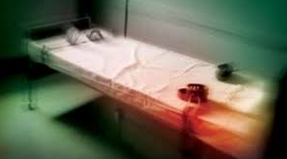|
[The author is the father of a nine year-old boy with multiple mental and developmental disabilities. He lives in California.] Our son, Jacob (not his real name), is nine years old. He has been diagnosed with a range of mental health and developmental disorders, including autism spectrum disorder, oppositional defiant disorder, mood disorder, anxiety disorder, and most tragically, childhood onset schizophrenia. In spite of multiple medication trials and behavioral and other therapies over many years, Jacob remains violent toward caregivers on a daily basis and less frequently toward peers. In addition, Jacob is chronically internally preoccupied and disconnected from reality, intermittently distressed by paranoia, delusions and the voices only he hears, and his thinking and speech have become so garbled that he is incoherent the vast majority of the time. In a meaningful sense, we have lost and continue to lose gradually the child we once thought we had.
Behind the diagnostic labels, the severity of his abnormal brain development and the impairments in his functioning are obvious. His violent behaviors have become so frequent and dangerous he can no longer live at home. No specialized school or residential treatment center in California—facilities designed to handle children with disabilities like these—would serve him, so we had to send Jacob to a placement 3,000 miles away, after he spent the majority of the last 16 months in hospital and partial hospital settings. While my wife and I each have some very distant relatives with mental illness or autism, none of our 11 nieces and nephews nor any other close relatives have anything like the mental health or developmental challenges that Jacob does. Furthermore, Jacob's disorders are considered "idiopathic" in the sense that clinicians cannot find— despite extensive testing—any prenatal or genetic causes for this most unexpected, traumatic, and truly horrifying outcome in our son. A few years ago, at the prompting of our friend Jill Escher, I asked my mother if I had been exposed in the womb to any fertility or anti-miscarriage treatments. I thought it was a strange question, but Jill had two children with idiopathic autism, and she explained she had just discovered that she had been exposed in utero to synthetic steroid hormone drugs via injections given to her mother at a popular Los Angeles fertility clinic. In Jill's case, her mother had two prior miscarriages and the practitioners of the time felt that supplementing a pregnancy with synthetic hormone cocktail could improve the gestational environment. Jill thought those old drugs could have disrupted the molecular programming of her eggs. So I asked my mother, and the answer, to my surprise, was yes. I was born in 1969 in New York City, and while pregnant with me my mom received treatments at the New York Fertility Institute, but did not recall the names of the drugs used. They treated her with hormones because she had had a D&C due to endometriosis. Though she could not locate those medical records, she said, "I remember taking some injections during the first few months of pregnancy so as not to miscarry." Whether my prenatal exposures to some form of anti-miscarriage hormone protocol of the 1960s affected the development of my gametes, I cannot say for certain. But it's a hypothesis that maps to the emerging research demonstrating adverse fetal germline effects of endocrine-disrupting drugs, and the revelation that the genes most likely to retain epimutations during reprogramming are those involved with neurodevelopment. I hope the tragedy of our son, and that of Jill's autistic children, too, will help prompt more researchers to tackle the germline disruption hypothesis. These "genetic-ish" conditions must be seen in light of actual biological history. These old prenatal exposures to powerful chemical compounds used in obstetric practice were very real and very acute, even if you did not ask or know about them.
0 Comments
Your comment will be posted after it is approved.
Leave a Reply. |
AuthorJill Escher, Escher Fund for Autism, is a California-based science philanthropist and mother of two children with severe autism, focused on the question of how environmentally induced germline disruptions may be contributing to today's epidemics of neurodevelopmental impairment. You can read about her discovery of her intensive prenatal exposure to synthetic hormone drugs here. Jill is also president of Autism Society San Francisco Bay Area. Archives
July 2021
Categories |
- Home
-
Expert Q&A
- Eva Jablonka Q&A
- Amander Clark Q&A
- Mirella Meyer-Ficca Q&A
- Janine LaSalle Q&A
- Dana Dolinoy Q&A
- Ben Laufer Q&A
- Tracy Bale Q&A
- Susan Murphy Q&A
- Alycia Halladay Q&A
- Wendy Chung Q&A
- Pradeep Bhide Q&A
- Pat Hunt Q&A
- Yauk and Marchetti Q&A
- Emilie Rissman Q&A
- Carol Kwiatkowski Q&A
- Linda Birnbaum Q&A
- Virender Rehan Q&A
- Carlos Guerrero-Bosagna Q&A
- Randy Jirtle Q&A
- Jerry Heindel Q&A
- Cheryl Walker Q&A
- Eileen McLaughlin Q&A
- Carmen Marsit Q&A
- Marisa Bartolomei Q&A
- Christopher Gregg Q&A
- Andrea Baccarelli Q&A
- David Moore Q&A
- Patrick Allard Q&A
- Catherine Dulac Q&A
- Lucas Argueso Q&A
- Toshi Shioda Q&A
- Miklos Toth Q&A
- Piroska Szabo Q&A
- Reinisch Q&A
- Klebanoff Q&A
- Denis Noble Q&A
- Germline in the News
- Science
- Presentations
- About Us
- Blog
Proudly powered by Weebly


 RSS Feed
RSS Feed